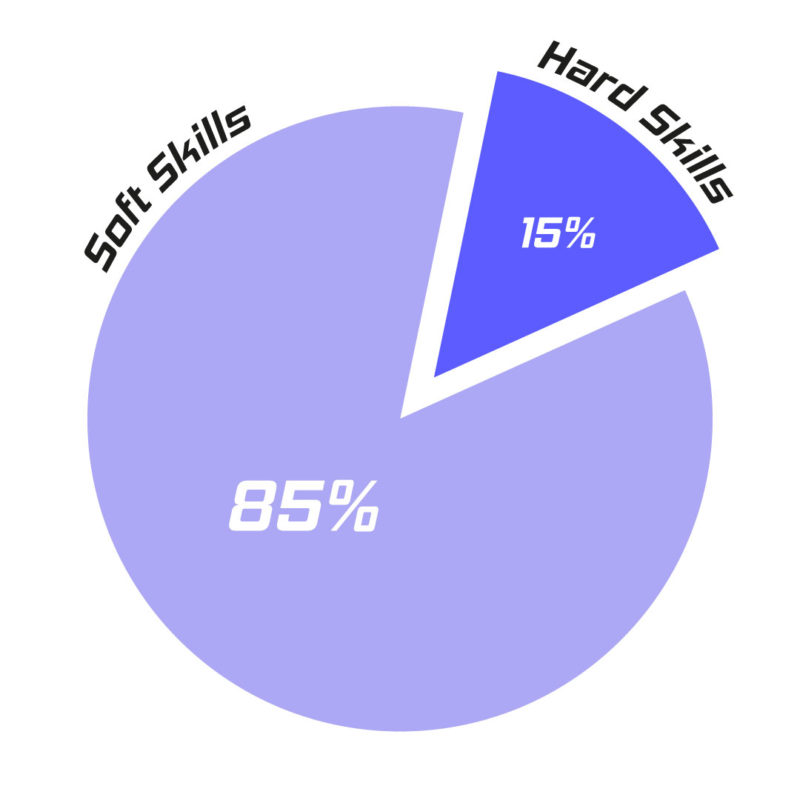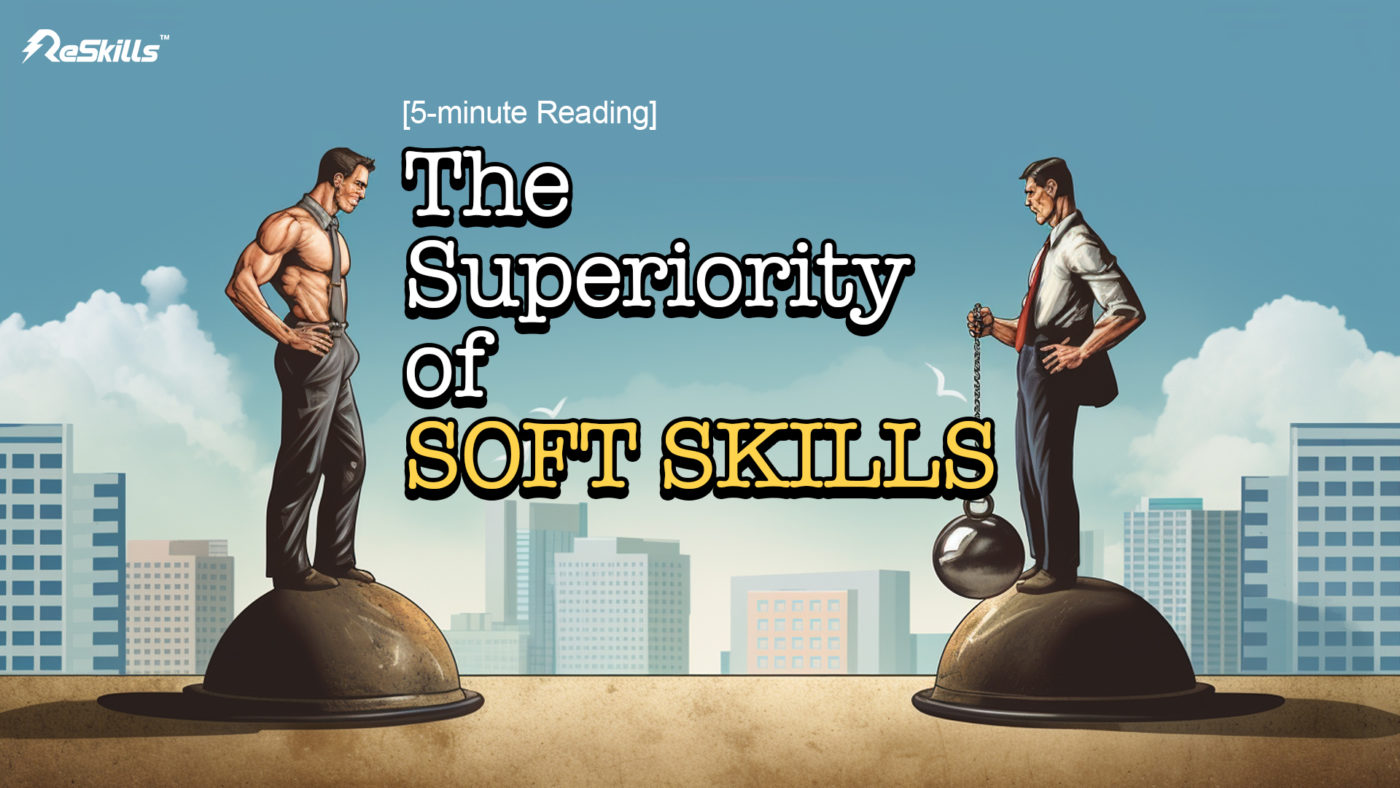In the ongoing debate of hard skills vs. soft skills for career success, it’s time to debunk a common misconception. While hard skills are undoubtedly valuable, it’s the soft skills—the often-overlooked, intangible qualities—that truly stand as the bedrock of a thriving career.
Research conducted by esteemed institutions such as Harvard University, the Carnegie Foundation, and the Stanford Research Center has unveiled a fascinating insight into career success. Surprisingly, a whopping 85% of an individual’s trajectory towards professional achievement can be attributed to the development of robust soft skills and adept interpersonal abilities. On the contrary, hard skills, encompassing technical know-how and knowledge, only play a minor role, accounting for a mere 15% of the overall equation. These findings underscore the paramount importance of refining one’s emotional intelligence, communication finesse, and teamwork acumen on the journey to reaching new heights in one’s career.

Now, let’s delve into why soft skills are gaining prominence, the benefits of mastering them, and how they can propel you towards a thriving career.
The Ascendance of Soft Skills
In today’s interconnected world, soft skills such as communication, teamwork, adaptability, and empathy are more important than ever. They empower individuals to succeed in their careers by promoting effective communication and seamless collaboration in diverse work settings. These skills also bridge cultural and geographical gaps, minimizing misunderstandings and building trust. In essence, they are indispensable for navigating the intricacies of the modern workplace.
Why Soft Skills Are More Important
Soft skills have gained prominence in the modern workplace for several compelling reasons:
- Effective Communication: Soft skills such as communication and active listening are the foundation of healthy workplace relationships. In a world where teams collaborate across geographical boundaries, the ability to convey ideas clearly and empathetically is crucial. Without effective communication, misunderstandings can lead to conflicts, project delays, and decreased productivity.
- Teamwork and Collaboration: Many industries have shifted toward team-based projects and cross-functional teams. Soft skills like teamwork and collaboration enable you to work harmoniously with diverse groups of people. They help build a sense of camaraderie, trust, and synergy among team members, resulting in higher-quality work and a more enjoyable work environment.
- Adaptability: In our rapidly changing world, adaptability is a prized asset. Soft skills like adaptability and resilience allow you to embrace change and learn new skills swiftly. As industries evolve and new technologies emerge, those who can adapt are more likely to thrive in their careers.
The Benefits of Mastering Soft Skills
Developing and honing your soft skills can yield a multitude of benefits:

- Enhanced Leadership: Effective leaders often possess exceptional soft skills. By mastering them, you can inspire and motivate your team, fostering a positive work environment and achieving outstanding results.
- Improved Problem Solving: Soft skills such as critical thinking and creativity empower you to approach challenges with innovative solutions, making you an asset to your organization.
- Networking Opportunities: Building strong interpersonal relationships through soft skills can open doors to new opportunities, as people are more likely to collaborate and refer those they trust.
Achieving Career Success with Soft Skills

Mastering soft skills is not merely about becoming a more adept communicator or a more effective team player; it’s a strategic path to advancing your career. Soft skills play a pivotal role in leadership, as leaders who possess qualities like empathy, motivational abilities, and active listening tend to inspire their teams and foster a positive work environment. This, in turn, can boost morale, enhance productivity, and open doors to career advancement opportunities.
Moreover, soft skills, including critical thinking, creativity, and adaptability, empower you to tackle challenges with innovative solutions. Problem-solving is a fundamental aspect of many roles, and your ability to navigate complex issues can make you an indispensable asset to your organization, setting you on a trajectory towards career success.
Furthermore, building and nurturing professional relationships itself is a soft skill. When you practice soft skills like empathy, active listening, and effective communication in your interactions, you cultivate trust and goodwill. These qualities can lead to networking opportunities, referrals, and collaborations that not only enrich your professional life but also propel your career forward. Soft skills, in essence, become the key that unlocks the doors to your career aspirations.
To wrap it up, when it comes to achieving career success, hard skills and soft skills are not in opposition but rather complementary. The fusion of technical proficiency and emotional intelligence can elevate your professional journey beyond what either can achieve individually. Therefore, embrace the path of mastering both hard and soft skills, and witness your career flourishing in an ever-evolving professional arena. The future belongs to those who can adeptly adapt, collaborate harmoniously, and communicate effectively, making soft skills the hidden key to triumph in one’s career.



